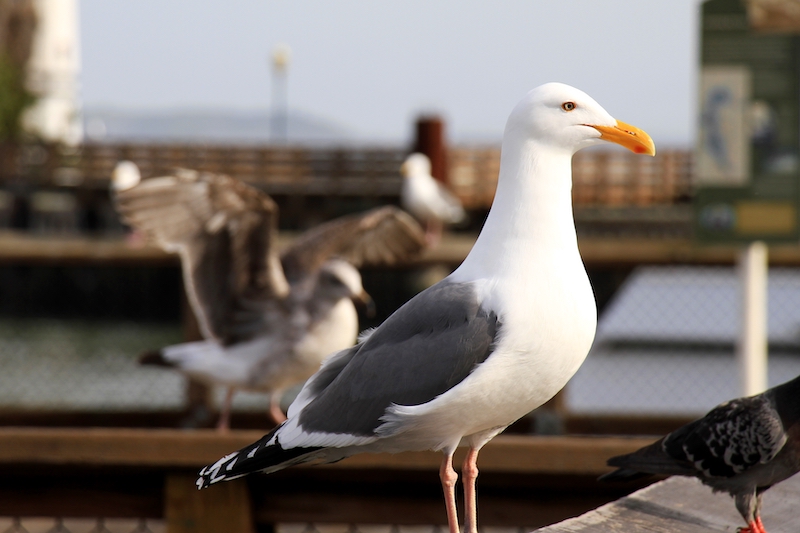Everyone knows that modern Welsh is full of English loan words. This is definitely expected given that Wales and England sit next to each other, and it’s almost inescapable when you consider the history of the Welsh language’s endangerment under English linguistic dominance.
For better or for worse, English loanwords are part of the fabric of the language today – and they’re very often adapted with Welsh spelling, plurals and pronunciation.
But did you know that it works the other way around too? Granted, it’s far less common. But in English today there are a few words which have their origin in Welsh, and with some of them, you wouldn’t even be able to tell. In this article, we’ll go through ten English words which have known or suspected roots in the Welsh language.
1. Corgi
Throughout the United Kingdom, it’s a well-known fact that the cŵn (dogs) most beloved by the royal family are corgwn (corgis). These tiny cŵn were originally bred in Wales for herding, and come in two sub-types, the Pembroke Corgis owned by the late Elizabeth II, and the Cardigan Corgis.
Roedd y Frenhines yn dwlu ar ei chorgwn.
The Queen loved her corgis.
So given they come from Wales, it should be no surprise that their name does too! The Welsh word for dog is ci, and we can see that in its mutated form gi in the second part of the word corgi. The first part of the word, cor, means dwarf and refers to the breed’s very tiny stature. Interestingly, some breeders of corgis use the Welsh plural corgwn even writing in English – a nod to the word’s original etymology.

2. Bard
The English word bard is used in a couple of different ways. Sometimes it’s very simply as an alternative to poet, as in the term The Bard for Shakespeare. Sometimes it’s employed to convey a more specific idea of a traditional travelling entertainer functioning as a bardd (poet), digrifwr (comic), and cerddor (musician), kind of like a synonym of minstrel.
We know that the word bard comes from the Old Celtic *bardos, and indeed for the ancient Celts, poetry and music were important and respected pursuits. What’s less clear is whether it travelled into English from the Scottish Gaelic *bàrd or the Welsh bardd (poet), as there’s evidence supporting both possibilities.
Descendants of *bardos appear in the other Celtic languages too – Irish and Manx both use bard, Breton has barzh and Cornish has bardh. This influential Celtic word was even borrowed into Latin, where it produced the modern Italian bardo.

3. Flummery
On such a small island, dishes are bound to travel between regions and countries. You’d probably have laughed if I put bara brith on this list, even though it’s a traditional Welsh dessert and word that’s used by English speakers too!
But one that you’re less likely to have known comes from Welsh is flummery. This is a starchy, soft pwdin (pudding) which has been eaten in England and Wales since at least the 1600s and possibly even earlier. It comes from the Welsh word llymru for a similar dish made of oats. Strangely, it’s actually a very common practice in English names adapted from Welsh to change the tricky ll sound into a fl. Think of the surname Floyd, for example; this is an Anglicisation of Lloyd.
Flummery or llymru isn’t the world’s tastiest dessert, and the word later came to be used to refer to empty chatter or just straightforward nonsense. The more you know!
4. Penguin
Now, I have to admit that there are a few potential etymologies for the English word penguin, but the idea that it comes from Welsh isn’t as far fetched as you might think. In fact, it’s one of the most commonly proposed theories for this mysterious word and is listed in most dictionaries.
The Oxford English Dictionary and Merriam-Webster both suggest that penguin probably comes originally from the combination of the Welsh pen (head) and gwyn (white), with the spelling later altered. Although penguins don’t actually have a white head, pen in Welsh is often also used to mean front or top, so it could be referring to the animal’s white chest.
And in modern Welsh these cute adar (birds) are called pengwiniaid / pengwyniaid, just as you might expect.

5. Coracle
Coracle is a bit like corgi when it comes to exactly why the English language has adopted a Welsh word – it’s because coracles are a Welsh thing! It’s a small cwch (boat) used traditionally in Wales and also other parts of Celtic Britain. Similar vehicles are utilised in other parts of the world from South America (the pelota) to Iraq (the quffa).
Yn y flwyddyn 1974, croesodd Bernard Thomas y Sianel ar gwrwgl.
In the year 1974, Bernard Thomas crossed the English Channel on a coracle.
You may think that coracle doesn’t look much like a Welsh word, and you’d be right to think so. It’s an Anglicisation of the original spelling, cwrwgl. The plural of cwrwgl is cwryglau. Itself, cwrwgl is probably a borrowing from the Latin corium, meaning leather, which is the material that coracles were traditionally made from.

6. Gull
As with bard, we know that gull comes from a Brittonic language but we don’t know which one. Gull has existed in English for a long time – it’s attested in Middle English in the form gulle.
From there things get a bit murkier, because Breton, Cornish, and Welsh all have very similar words for a gull or a seagull, which are gouelan, golan, and gwylan respectively. These words come from the proto-Brittonic *gwuilann and that’s from the proto-Celtic *weilanna even further back.
Where the proto-Celtic itself originates is a fun riddle, but most theories agree that it’s in some way imitative, with the *wei portion of the word mimicking the crying call of a gull.

7. Flannel
If you ask a Welsh person what Wales’ greatest gift to the rest of the world is, they’re more likely than not to say its beautiful music or poetry. Less likely is that they’ll sing the praises of the humble flannel!
When flannel was first used in the 16th century it was called Welsh cotton. Later on, the indigenous word gwlanen (a cloth, particularly of flannel) was borrowed into English to make things more clear, first as flannen and later as the flannel we know today. Nowadays, there’s a version of flannel in almost every European languages, making this simple word potentially the most surprisingly influential on this list.
Dim ond brws dannedd a gwlanen sydd angen i ti pacio.
You only need to pack a toothbrush and a face cloth.

8. Kistvaen
There are actually more archaeological terms in English that derive from Welsh, Cornish and Breton than you might think. This is because native Brittonic words are more likely to be used in contexts specific to the kind of indigenous Celtic culture that these days we can only discover through archaeology.
Though it’s not exactly in most people’s everyday vocabulary, I include kistvaen in this list as an example of this category of word. It’s derived from the Welsh words cist (chest) and maen (stone). And the transformation of maen to faen and later the Anglicised vaen is just an example of our old friend the soft mutation!
9. Crumpet
Unfortunately, the Welsh can’t with full confidence lay claim to the wonderful British tradition of the crumpet because this is probably the most tenuous entry on this list!
But I think it’s still an etymological theory worth discussing – if only because the words in question are actually very similar. In Modern Welsh, a crumpet is called a cramwythen or just a crwmped. But this isn’t the potential origin of the English word. Instead, one of the ideas proposed is that it could crumpet could come from the Welsh word crempog (pancake).
One thing that makes this hypothesis convincing is that we know that similarly cooked bara (bread) did originate in Wales. They were called picklets before they were called crumpets, and though crumpet’s parentage remains unsure, picklet definitely originates from the Welsh term bara pyglyd (dark bread).

10. Cwtch
The most obvious class of Welsh words in English is those that have been borrowed very recently. Think yaki-da from the Welsh cheers iechyd da (good health), or the fact that the Welsh competition eisteddfod has no translation into English and therefore has to be spoken in its Welsh form.
Of all these cwtch is without a doubt the most recognised outside of Wales, and so it’s this lovely word that we’ll end our article with. Also spelt cwtsh in Welsh, it was itself borrowed from Middle English and originally comes from the French coucher (to lie down, to go to bed).
‘Dyn ni’n cwtsio lan a gwylio ffilm.
We’re cuddling up and watching a film.

After going through these ten interesting English words with roots in Welsh, I always find myself wondering why there aren’t more! Even if you go further back and include any English word that comes from proto-Celtic, you’re still left with a paltry amount. Modern English is much more similar to German or French than the languages it shares its island with.
Why the Celtic influence on English is so limited is a question that historians and linguistics have been mulling over for quite some time. Some relatively more recent research suggests more links than we might expect – if you’re interested in this, the journal English Language and Linguistics published a special issue on the subject in 2009, though you’ll need access to read it through the Cambridge University Press website.
For now, I’ll happily enjoy using those English words that owe their existence to Welsh, while looking forward to discovering more – and, as Welsh continues to regain its strength, perhaps even seeing new ones created! 😊

